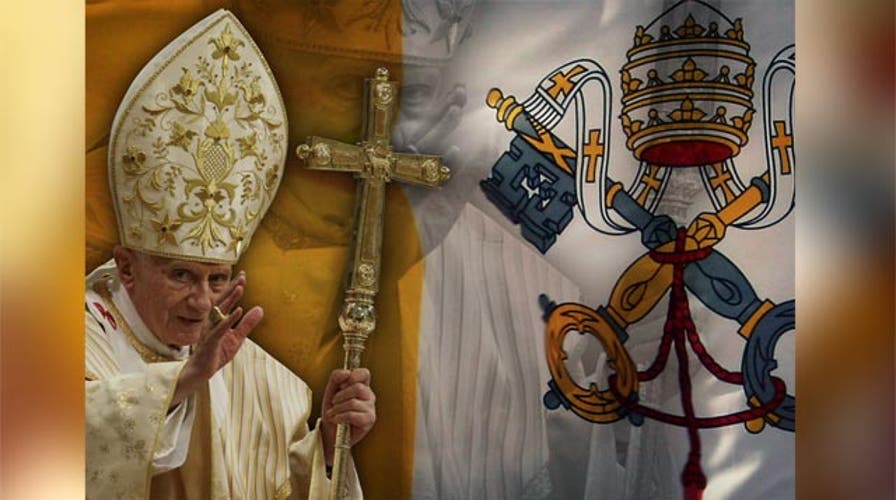Is a new Pope the opportunity for a new Catholic Church?
Rick Sanchez says the Pope's surprise resignation should lead to changes in the church doctrine
When Pope Benedict announced his surprise resignation on Monday, I began to think –like many others– that this might be an opportunity for the Catholic Church to change. Some began wondering from where the next pope might hail — many have asked whether it's time for a pope from the "New World" rather than Europe. But this news actually reminded me the lingering controversy still plaguing the Catholic Church: Its global sexual abuse crisis.
While I'm a practicing Catholic and go to mass regularly, I also disagree with some church doctrine. One area where I disagree most is whether priests should be allowed to marry, whether there's still a place for celibacy in the 21st century and whether celibacy has been a good thing for the Catholic Church.
For gay men of a different generation, being a priest allowed them to be respected in a world where they might otherwise have been shunned and marginalized.
No matter the next pope’s nationality, he will undoubtedly have to face this issue.
The question is not if, but for how much longer, the Catholic Church will continue requiring priests to be celibate. My answer: Not much longer.
The reason is simple: demographics, economics and a seismic cultural shift.
But today, at least in the U.S., gays have finally earned acceptance and tolerance. And that is a huge political and cultural shift.
Gays have fought for and won the right not to be discriminated against in the workplace. They have won the right to marry in an increasing number of states. More than that, they have won societal and cultural acceptance. From television to movies, from medicine, law and even politics, homosexuals have become an important, visible and vibrant part of the fabric of our society.
And in a world where homosexuals no longer need to hide in the shadows and mask their lives, they can hold practically any position in any profession they want. Being a priest is no longer a preferred option; it's merely one of many.
I think the only way to increase that labor pool is to change the qualifications required to become a priest. Doing away with the requirement of celibacy, and allowing priests to marry, will mean more straight men will begin to consider the priesthood. That, in turn, will increase the pool of potential priests available to the Catholic Church.
To be sure, economics has also played a role in the Catholic Church maintaining the celibacy of priests. Think about this: if your employer required that you couldn't marry nor have children in order to keep your job, don't you think that they could also justify paying you less? A single man is willing to work for less than a man who has a family to support. Priests who are married need higher salaries to support their families. So it made economic sense to shun hiring priests who could marry.
But celibacy –and attracting closeted homosexuals as priests– has also brought a heavy economic cost on the Catholic Church, one that has far outweighed the benefits.
American dioceses have been decimated, and even driven into bankruptcy, because of the settlements in sexual abuse cases. The U.S. Catholic Church has paid out over $1 billion in settlements.
And so celibacy has a cost too, one that is far greater financially than allowing priests to marry.
For all these reasons, change will come.
In my view, demographics, not dogma, will dictate the future of the Catholic Church. Economics, not ideology, will force a new approach.
In the past, the Catholic Church could afford to buck societal trends and not change doctrine. A changed world accepting of gays has been a reality that the church has so far been able to ignore for the most part. But the new pope won't have that luxury very much longer, and the church will no longer be able to afford its old policies.
Let's hope the new pope realizes that the world has changed, and that for the good of Catholics worldwide, he will have the courage to chart a new course that allows priests to have full lives — a course that finally brings the church into the 21st century.

